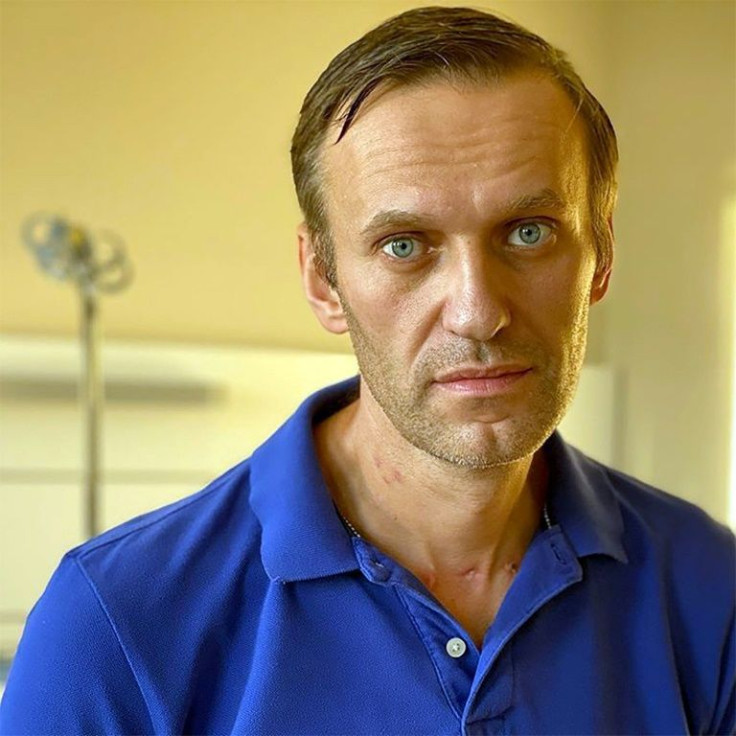Navalny Discharged From Hospital, Eyes Full Recovery
Leading Kremlin critic Alexei Navalny, who the West believes was poisoned with a Soviet-era nerve agent, has been discharged from hospital after a month and can make a full recovery, his doctors in Berlin said Wednesday.
European leaders have demanded explanations from Moscow since Germany said toxicology tests showed the 44-year-old anti-corruption campaigner was poisoned with Novichok.
But the Kremlin has rubbished allegations it was behind the poisoning, and it said on Wednesday that with his recovery, Navalny "is free" to return to Russia anytime, "like any other Russian citizen".
The outspoken opposition activist fell ill after boarding a plane in Siberia in August. Russian doctors who first treated him said their tests did not find any toxic substances.
German lab tests however pointed to "unequivocal proof" of Novichok, which was also used to poison ex-double agent Sergei Skripal in Salisbury, England, in 2018. He survived.
France and Sweden have since said tests they ran independently corroborate Germany's conclusions.
Navalny spent 32 days in the Charite hospital in the German capital, including 24 days in intensive care, before his release on Tuesday, the hospital said.
"Based on the patient's progress and current condition, the treating physicians believe that complete recovery is possible," Charite said in a statement, adding however that it remained too early to assess any long-term effects of his severe poisoning.
For now, Navalny will remain in Germany as he embarks on rehabilitation, his spokeswoman Kira Yarmysh said on Twitter.
Navalny collapsed last month while on a flight from Tomsk to Moscow after a campaign trip to support opposition candidates in local elections.
He was evacuated to Berlin on August 22 in a coma and on mechanical ventilation.
Posting a photograph of himself sitting on a Berlin bench, Navalny said on Instagram Wednesday he was far from fully recovered and would require rehabilitation.
"The plans are always simple: a physiotherapist every day. Possibly a rehabilitation centre. Stand on one leg. Take back control of my fingers completely. Maintain balance," he wrote.
The Kremlin critic has been active on social media since being brought out of the coma.

In his first blog posted on Monday since regaining consciousness, Navalny said that the three European labs had found Novichok "in and on my body".
He noted that Russia had still not opened an investigation but that he "did not expect anything else."
With his condition improving, his spokeswoman Kira Yarmysh has said the opposition leader planned to return to Russia.
"No other option has ever been considered," she told AFP.
Navalny aides said Thursday that German experts found Novichok on a water bottle taken from the hotel room where he stayed before being taken ill.
The bottle appears to have been key evidence for Germany's conclusion that the lawyer and outspoken critic of President Vladimir Putin was poisoned with the deadly nerve agent.
Navalny's poisoning has heightened tensions between Russia and the West, in particular aggravating the relationship with Germany.
Merkel had always insisted on keeping channels of dialogue open with Moscow but she has sharpened her tone lately, with Navalny's case coming a year after a murder in a central Berlin park that German prosecutors say was ordered by Russia.
Without directly citing the Navalny poisoning, Russia's foreign ministry on Wednesday said it was expanding "a reciprocal list of representatives of EU countries and institutions banned from entering Russian territory" over what it described as the "destructive nature" of the bloc's behaviour.
On Tuesday, the French daily Le Monde reported that in a phone call when France's President Emmanuel Macron demanded that Putin shed light on the incident, the Russian leader had suggested that Navalny may have taken the poison himself "for a non-specified reason".
Reacting to the report, Navalny said in a sarcastic post on Instagram that "that's a good lead".
"I cooked Novichok in the kitchen. Swallowed some from my hip flask on the plane. Went into a coma...
"My cunning plan was to die in a hospital in Omsk, where at the morgue the autopsy would have concluded 'cause of death: lived long enough'. But Putin saw right through me.
"And as a result, I, like an idiot, was in a coma for 18 days, and didn't get what I wanted. The provocation failed," he wrote.
© Copyright AFP 2024. All rights reserved.





















